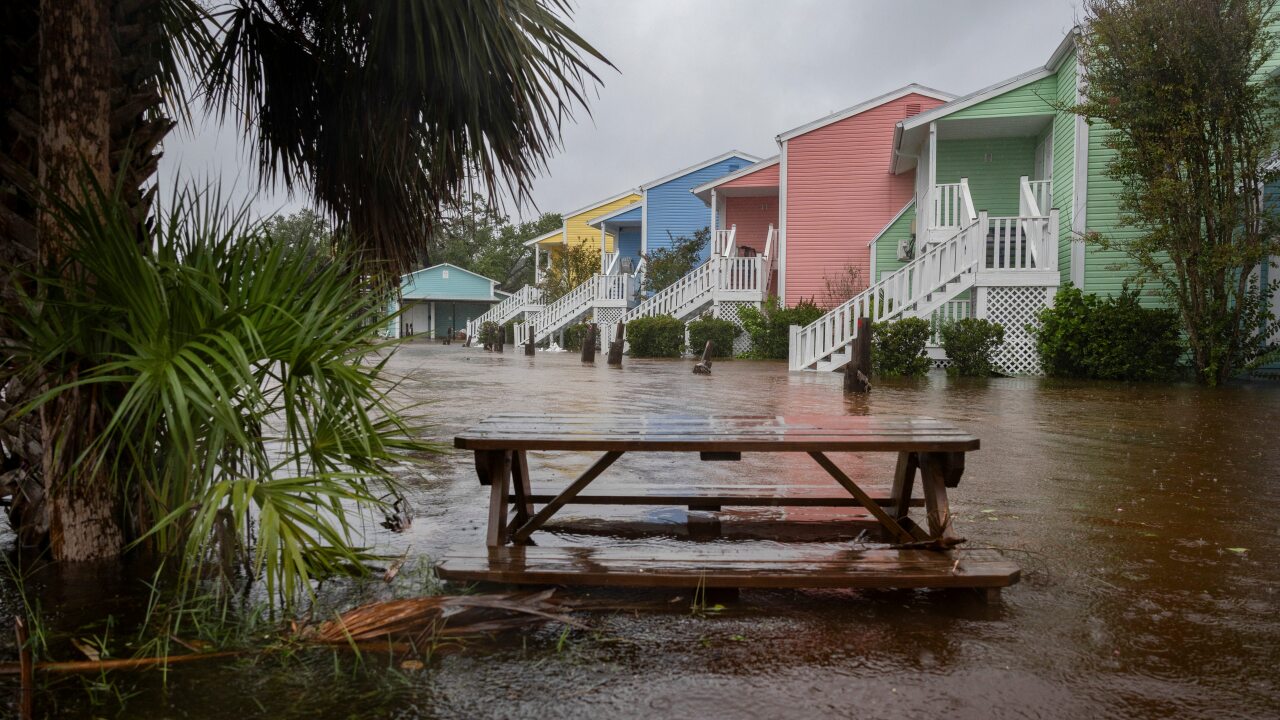
JPMorgan Chase's deal to pay $75 million to the U.S. Virgin Islands to settle allegations that it knowingly facilitated, sustained and hid Jeffrey Epstein's sex crimes also includes various commitments to combat human trafficking in the future.
The
The Virgin Islands sued JPMorgan in December, accusing the megabank of turning "a blind eye to evidence of human trafficking over more than a decade" due to Epstein's financial position and certain relationships he pledged to bring to the bank.
Epstein, a convicted sex offender who had a Virgin Islands residence, was a client of JPMorgan until 2013, five years after he pleaded guilty to procuring and soliciting a minor for prostitution. Epstein died in federal prison in 2019 while awaiting trial on sex-trafficking charges. The cause of death was listed as suicide.
The deal is "an historical victory for survivors and for state enforcement," U.S. Virgin Islands Attorney General Ariel Smith said in a press release Tuesday. "It should sound the alarm on Wall Street about banks' responsibilities under the law to detect and prevent human trafficking."
JPMorgan on Tuesday did not admit any wrongdoing. In a statement, the bank said it "deeply regrets any association" with Epstein and that the company "would have never continued doing business with him if it believed he was using the bank in any way to commit his heinous crimes."
Of the $75 million payment, $30 million will be directed to Virgin Islands charities that support victims of crimes, including human trafficking and other sex crimes, JPMorgan said Tuesday.
The remaining money will be split between $25 million for public safety initiatives, including the establishment of a $10 million fund to provide mental health services for Epstein's survivors, and $20 million for attorneys' fees. The New York Times
The deal includes a commitment by JPMorgan Chase to inform law enforcement when its customers are identified as being involved in human trafficking, according to the Virgin Islands' Department of Justice.
Under the settlement's terms, the nation's largest bank by assets agreed to terminate customers' accounts if it has credible information that the accounts are facilitating human trafficking.
JPMorgan agreed to identify and escalate clients who are associated with forced or child labor, human trafficking or slavery. The bank pledged to escalate and remediate issues in the event that one of its suppliers is identified as violating human trafficking laws.
In addition, JPMorgan agreed to conduct annual employee training on how to identify, report and address evidence of human trafficking by the bank's customers. And it said it would ensure that accounts at its private bank are not opened without satisfactory due diligence, according to the U.S. territory's press release.
The deal still needs to be approved by U.S. District Judge Jed Rakoff.
The Virgin Islands originally sought $190 million from JPMorgan, according to media reports.
Including Tuesday's $75 million settlement, JPMorgan has now agreed to pay $365 million to settle various charges regarding its ties to Epstein. In June, it said it would pay $290 million to settle a class action brought against the bank by some of Epstein's victims.
Also on Tuesday, JPMorgan said it reached a settlement with its former private banking executive Jes Staley to resolve the bank's claims that Staley covered up Epstein's activities.
Staley was later the CEO of Barclays, before resigning in 2021 due to his relationship with Epstein.
JPMorgan did not disclose terms of its settlement with Staley. Staley's lawyers did not respond to a request for comment.
Kevin Wack contributed to this story.






